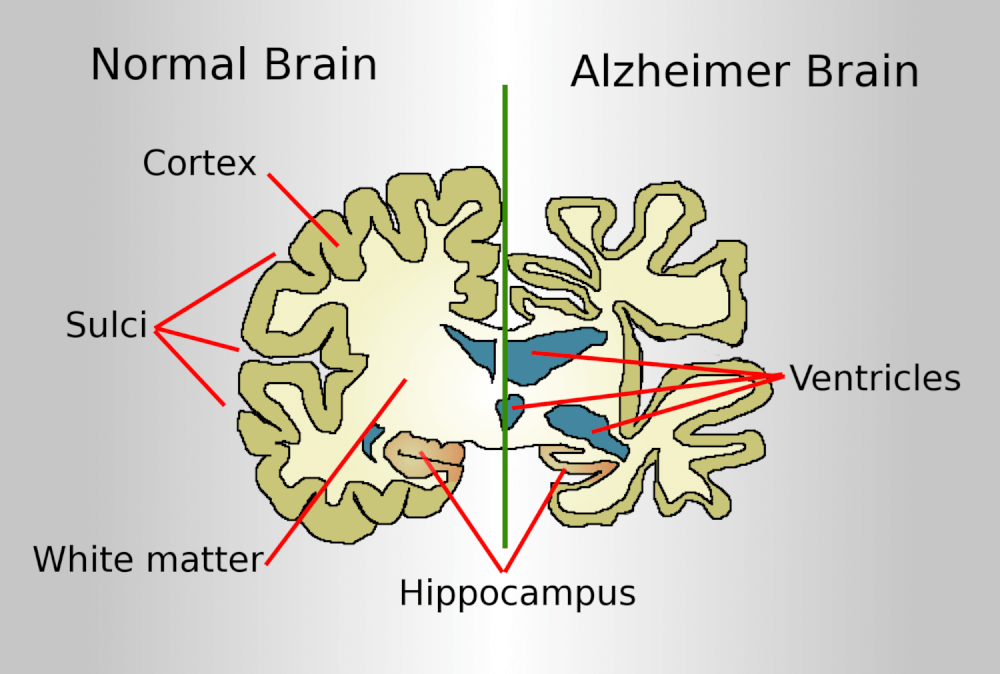Dental Care for People with Alzheimer's Disease
)
You may be surprised if we tell you that there is a positive correlation between Alzheimer’s Disease and Poor Dental Health. We thought this article could really help our patients and loved ones who are diagnosed with this difficult disease.
WHAT IS ALZHEIMER’S DISEASE?

Alzheimer’s disease is the most common cause of dementia. The word dementia describes a set of symptoms that can include memory loss and difficulties with thinking, problem-solving or language.
During the course of the disease, proteins build up in the brain to form structures called ‘plaques’ and ‘tangles’. This leads to the loss of connections between nerve cells, and eventually to the death of nerve cells and loss of brain tissue. People with Alzheimer’s also have a shortage of some important chemicals in their brain. These chemical messengers help to transmit signals around the brain. When there is a shortage of them, the signals are not transmitted as effectively.
Alzheimer’s is a progressive disease. This means that gradually, over time, more parts of the brain are damaged. As this happens, more symptoms develop. They also become more severe.
SYMPTOMS OF ALZHEIMER’S

The most common early symptom of Alzheimer’s is difficulty remembering newly learned information.
Alzheimer’s changes typically begin in the part of the brain that affects learning. As Alzheimer’s advances through the brain it leads to increasingly severe symptoms, including disorientation, mood and behavior changes; deepening confusion about events, time and place; unfounded suspicions about family, friends and professional caregivers; more serious memory loss and behavior changes; and difficulty speaking, swallowing, walking, doing daily routines including brushing teeth.
LONG TERM PERIODONTAL DISEASE AND ALZHEIMER’S

Recent researches found a significant link between gum disease and worsening dementia symptoms.
“Gum disease sufferers 70% more likely to get dementia,” The Times reports. A Taiwanese study found that people with a 10-year or longer history of chronic periodontitis (CP) had a small but significant increased risk of developing Alzheimer’s disease (AD).
Only around 1 in 100 people with Chronic Periodontitis who took part in the study went on to develop AD. It was also not possible to tell whether the results were influenced by people having early undiagnosed Alzheimer’s Disease, which could have led to poorer oral hygiene.
These limitations aside, the study gives another good reason to keep your teeth and gums healthy. It’s still a good idea to take good care of your gums through regular brushing and flossing, and avoiding smoking.
GUM DISEASE, ALZHEIMER’S DISEASE MAY BE LINKED
People with poor oral hygiene or gum disease may be at a greater risk of developing Alzheimer’s disease, according to a study published online in the Journal of Alzheimer’s Disease on May 10.
DENTAL CARE FOR PEOPLE WITH ALZHEIMER’S DISEASE
Proper care of the mouth and teeth can help prevent eating difficulties, digestive problems and extensive dental procedures down the road. However, brushing is sometimes difficult because a person with Alzheimer’s may forget how or why it’s important to take care of his or her teeth.
To assist:
Provide short, simple instructions. “Brush your teeth” by itself may be too vague. Break down each step by saying: “Hold your toothbrush.” “Put paste on the brush.” Then, “Brush your teeth.”
Use a “watch me” technique. Hold a toothbrush, and show the person how to brush his or her teeth. Or, put your hand over the person’s hand, gently guiding the brush.
Use of a good electric toothbrush for these patients would be very helpful especially the dexterity starts to decline. If applicable, we suggest using electric toothbrush.
Monitor daily oral care. Brush teeth or dentures after each meal, and make sure teeth are flossed daily. Disposable flossing devices may make flossing easier. Remove and clean dentures every night. Very gently brush the person’s gums, tongue and roof of the mouth. Investigate any signs of mouth discomfort during mealtime. Refusing to eat or strained facial expressions while eating may indicate mouth pain or dentures that don’t fit properly.
Keep up with regular dental visits for as long as possible. Seeing a dentist regularly is essential for healthy teeth. Ask the dentist for suggestions or items that may help make dental care easier.
Dental treatment in early stages of the disease are important and should be finalized at producing a stable oral condition. This could improve the quality of life and contribute to decrease worsening of oral situations in the later stages of the disease when dental treatment may be difficult.
Maintaining oral health brings benefits in terms of self-esteem, dignity, social integration and nutrition. Poor oral health can lead to pain and tooth loss, and can negatively affect self-esteem and the ability to eat, laugh and smile. Please contact Madison Avenue Dentists, Dr. Stella Oh and Dr. Ash Estafan for any questions or for an appointment. We can be a partner in caring for the dental needs even with difficult conditions.
Sources:
https://www.alzheimers.org.uk/info/20007/types_of_dementia/2/alzheimers_disease
https://www.alz.org/living_with_alzheimers_10512.asp
https://www.medicalnewstoday.com/articles/264164.php
http://www.dementiatoday.com/alzheimers-and-dental-careoral-health/